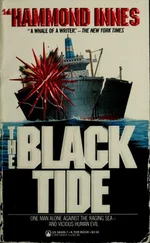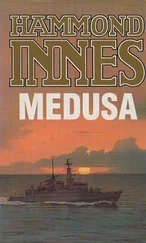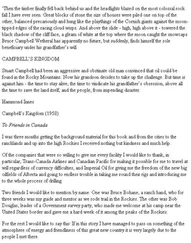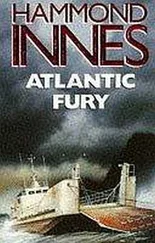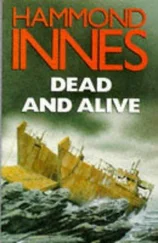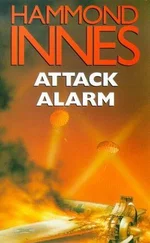Hammond Innes - Solomons Seal
Здесь есть возможность читать онлайн «Hammond Innes - Solomons Seal» весь текст электронной книги совершенно бесплатно (целиком полную версию без сокращений). В некоторых случаях можно слушать аудио, скачать через торрент в формате fb2 и присутствует краткое содержание. Жанр: Прочие приключения, на английском языке. Описание произведения, (предисловие) а так же отзывы посетителей доступны на портале библиотеки ЛибКат.
- Название:Solomons Seal
- Автор:
- Жанр:
- Год:неизвестен
- ISBN:нет данных
- Рейтинг книги:4 / 5. Голосов: 1
-
Избранное:Добавить в избранное
- Отзывы:
-
Ваша оценка:
- 80
- 1
- 2
- 3
- 4
- 5
Solomons Seal: краткое содержание, описание и аннотация
Предлагаем к чтению аннотацию, описание, краткое содержание или предисловие (зависит от того, что написал сам автор книги «Solomons Seal»). Если вы не нашли необходимую информацию о книге — напишите в комментариях, мы постараемся отыскать её.
Solomons Seal — читать онлайн бесплатно полную книгу (весь текст) целиком
Ниже представлен текст книги, разбитый по страницам. Система сохранения места последней прочитанной страницы, позволяет с удобством читать онлайн бесплатно книгу «Solomons Seal», без необходимости каждый раз заново искать на чём Вы остановились. Поставьте закладку, и сможете в любой момент перейти на страницу, на которой закончили чтение.
Интервал:
Закладка:
I don’t think any of us was surprised not to find even a single bone, the heat had been so intense, the fire so furious. In the end, Jona scooped up two or three handfuls of the damp ash from the tangle of charred beams where we had found the gun, and these he took on board with him carefully wrapped in his handkerchief and there transferred them to a round chromium-plated cigarette box with rope and anchor decoration that was part of the wardroom furnishings. Then we went out with him into the middle of the cove in the rubber dinghy — just Perenna and myself with Luke at the outboard — and he read the burial service, then dropped the cigarette box into the water.
I remember thinking, as I watched the bright round metal of the box disappearing slowly from sight in the warm plant-green water of the cove, Surely that’s the end of it, the finish of what had begun so long ago with a man abandoning his partner at a place they had called Dog Weary in central Australia? I was looking at Jona then, and at Perenna. Surely the malevolent effect of it couldn’t go on for ever?
Luke had re-started the outboard. By the time we were back on board it was almost six, the sun set and the light fading. The Buka islanders were demanding to be put ashore. A gentle rain began to fall as we weighed and steamed out of the cove, out through the narrows between the Minon and Buka marker posts, past Sohano, past the jetty and the shops of Chinaman’s Quay, past the market to the Government wharf, where we lay alongside just long enough for Hans Holland’s men, still armed, to scramble ashore. Then into the channel again, with the Barreto ferry sidling over from the mainland, and down the whole length of the Buka Passage until at last we were into the Pacific. It was only then, when we had turned southeastward towards Cape L’Averdy, seeing the dark green slopes of the Emperor Range rising into a thick mist of cloud, only then, with the old ship rolling slowly to the long ocean swell and the open sea ahead of us, that I felt myself free at last of the strange, haunting and at times, it had seemed, positively evil atmosphere of Buka and the Buka Passage.
But then I remembered the note the houseboy had handed to Luke. The envelope, addressed to Perenna, was still in his pocket. He had forgotten all about it. But when I took it to her, she refused to read it, insisting that I read it for her. And when I had done so, I didn’t know whether to tell her or not. Hans had scribbled it moments before setting fire to the house. He had known what he was going to do, and he had done his best to ensure that the person most vulnerable should feel the weight of the past hanging over her. She was looking up at me, very tense; she must have seen my reaction, for she suddenly changed her mind. ‘What’s it say? Read it to me.’ And when I had done so, she said hotly, ‘It’s a lie, a stinking, bloody lie.’ And she added quickly, ‘I’ve heard it before. Tim mumbled it in delirium. But it’s a lie. My grandfather would never have done a thing like that — his own daughter-in-law. It’s unthinkable.’ And she told me to tear it up and throw the pieces overboard and not to say a word about it to Jona. But I doubt whether it would have mattered very much to him, not then. He had other problems on his mind, for Simon Saroa, back in the signals office behind the wheelhouse, had picked up a message from Port Moresby instructing the LCT to proceed with all speed to Kieta to embark government troops being airlifted in the following morning.
The situation, however, had changed by the time we had rounded Cape L’Averdy. Kieta airport was unserviceable. Before retreating, the insurgents had blown the runway. Moreover, there had been heavy rain during the late afternoon, and visibility had been so bad that the second airlift, which would have had to use the road again, had been postponed until the weather improved. We ourselves were then steaming through a drizzle of rain that was so thick and humid it was virtually cloud.
Dawn broke grey and miserable, the humidity thick and the rain still falling. We had been ordered to Anewa, Kieta town still being held by the Sapuru regime, and we were coming in on radar with the tug just ahead of us as we steamed through the northern channel between Takanupe Island and Bougainville. It was almost nine before we were alongside the loading wharf, where we were met by the captain in command of the PNG airborne force. He was pale black, almost coffee-coloured, dressed in jungle combat gear with a parachute flash on his arm, and he was asking for Perenna. Apparently his men had virtually no ammunition left. Most of it had been handed over to the police at Buka airfield, and the rest had been expended in driving the insurgents out of Kieta airport. With no further airlift from Port Moresby to re-supply them they were now very vulnerable, the mining people having no weapons and being under orders not to become involved. But what Hans had said about the Chimbu mineworkers was true. There were several hundred of them in Arawa. They had already mounted a massive demonstration against the illegal regime which had effectively cut the insurgents off, so that they were now sealed into the Kieta Peninsula, except for a few key buildings they still held. However, the situation was still precarious, since the Highlanders refused to support the government forces without some guarantee for the future. This had been the situation for the past twenty-four hours, Tagup, their leader, insisting on speaking with Miss Holland before his people took any further action.
It was a strange situation. For that moment, it seemed, the fate of Bougainville lay in Perenna’s hands. ‘I think it is because the name Holland still means something, both here and in the Highlands of Papua New Guinea,’ the captain said to her as we drove out of Anewa in a requisitioned company car. ‘I refer, of course, to your grandfather, Colonel Holland. The Chimbu mineworkers need to be reassured that support of the legitimate government will secure their jobs at Paguna.’
Tagup was waiting for us at the sports centre where the Chimbu were camped in the stand and the changing rooms. On their way down from the mine they had found a red clay, and with this they had decorated their bodies so that now they no longer looked like a labour corps, but like the warriors they really were, and they were armed with whatever they had been able to lay their hands on at the mine — pangas, steel bars, giant spanners that they held like battle axes. Some had even made bows and arrows from wood cut from the rainforest.
The captain took Perenna alone to meet Tagup, then left the two of them talking together in the Chimbu tongue. The tribesmen were gathered round, but still leaving a space, so that they remained a little apart, and everyone waited.
Finally Tagup raised his hand in parting, smiling now. Then he turned abruptly and went towards his men, his face set and determined, his eyes flashing as he gave the order to march. Perenna, rejoining us, said, ‘I told him what had happened at Madehas and in the Buka Passage. He realised the driving force had gone out of the insurrection, the organisation, too. Now he’ll settle it in his own way.’
The battle that followed was a most extraordinary affair, a very noisy, blood-curdling, colourful non-event. The insurgents were concentrated in the new government office building and in the police station. Cut off from Arawa, they had only been able to grab some half-dozen expatriate whites, whom they were holding as hostages on the top floor of the police offices. No attempt was made to storm either this building or the government HQ. The Chimbu labourers advanced in serried ranks, their bodies half naked and freshly daubed with paint, crayons, cosmetics, anything they had been able to get hold of, but each advance was no more than a mock attack to be followed by withdrawal and a wild yelling of taunts. Advance, retreat, advance, retreat, the noise increasing, the distance lessening. Half Arawa, expatriate whites included, came out to cheer them on. Occasionally a shot was fired from the government HQ, but more in warning than in anger. Nobody was hurt.
Читать дальшеИнтервал:
Закладка:
Похожие книги на «Solomons Seal»
Представляем Вашему вниманию похожие книги на «Solomons Seal» списком для выбора. Мы отобрали схожую по названию и смыслу литературу в надежде предоставить читателям больше вариантов отыскать новые, интересные, ещё непрочитанные произведения.
Обсуждение, отзывы о книге «Solomons Seal» и просто собственные мнения читателей. Оставьте ваши комментарии, напишите, что Вы думаете о произведении, его смысле или главных героях. Укажите что конкретно понравилось, а что нет, и почему Вы так считаете.






